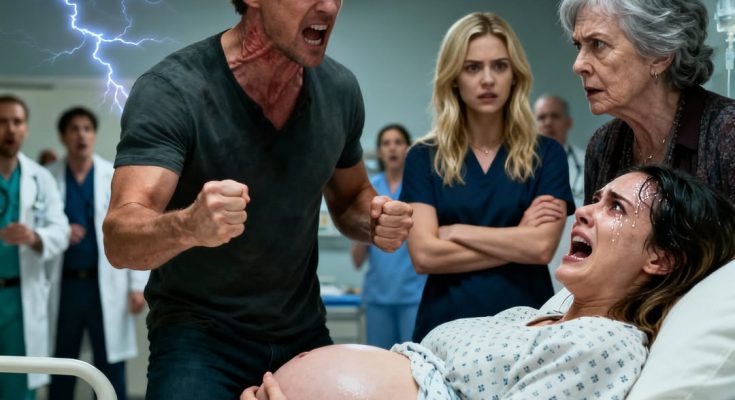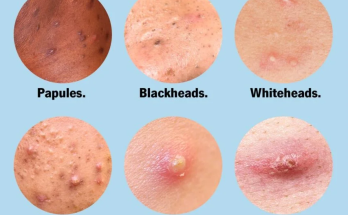When I woke up, everything felt sterile and still. The ceiling lights blurred into halos. My throat was dry, my hands trembling.
A nurse appeared with a gentle smile. “You’re safe now, sweetheart. You have two beautiful baby girls.”
Tears slipped down my cheeks. Relief mixed with heartbreak. “Are they okay?”
“They’re perfect,” she said softly. “But you lost a lot of blood. Another hour and you might not have made it.”
Another hour. That sentence sliced through me like glass.
The door opened. Daniel walked in, holding flowers — a pathetic gesture against everything that had happened. His mother followed behind him, looking irritated.
“Oh, you’re fine,” Lorraine said flatly. “See? I told you it was nothing serious.”
I stared at her, speechless.
The nurse froze, glancing between us. “Sir, ma’am — she nearly died. This wasn’t false labor.”
Daniel swallowed hard. “Mom, maybe we should—”
“Don’t ‘maybe’ me,” Lorraine snapped. “She always wants attention. Now the whole neighborhood thinks we’re monsters because that busybody dragged her here.”
That was it. The final crack in whatever fragile respect I had left.
I turned to Daniel, my voice steady. “Do you even understand what you did? You let her stop you. You let me almost die.”
His lips parted, but no sound came out.
Then, the nurse stepped in. “Sir, if you can’t respect your wife, you need to leave. Right now.”
Lorraine gasped. “How dare you—”
Before she could finish, the doctor entered — tall, composed, authoritative. He set down a clipboard and said, “Mrs. Morgan, your husband should know something. If his mother hadn’t delayed you, his children would be orphans right now.”
The room went dead silent.
Lorraine’s smugness evaporated. Daniel’s face drained of color.
The doctor turned to them both. “You’re lucky she survived. You won’t be allowed near her recovery room without permission.”
Lorraine opened her mouth again — but Daniel suddenly snapped.
“Mom, stop talking,” he said sharply. “You almost cost me my family.”
For the first time in years, she had no reply.
Two days later, I sat in my hospital bed, holding my daughters — Lila and Grace. Their tiny fingers curled around mine, and I felt something I hadn’t in years: peace.
Daniel came in quietly. His face was pale, his eyes red from sleepless nights. He pulled up a chair.
“I don’t expect forgiveness,” he said softly. “But I want to take responsibility. I was weak. I should’ve chosen you — I didn’t.”
I didn’t say anything. My silence said enough.
He looked at the twins, then at me. “I talked to my mom. She’s moving out. I told her she’s not welcome in our home anymore.”
That surprised me — but it didn’t erase the pain. “It’s not about her, Daniel,” I said. “It’s about you. You stood there while I begged for help. That’s not something I can forget.”
He nodded slowly, tears forming. “I know. I’ll spend the rest of my life trying to be better — if you let me.”
I held Lila closer, kissed her forehead, and whispered, “Right now, they’re all that matter.”
Over the next weeks, I focused on healing. Daniel visited daily, sometimes sitting silently by the crib, sometimes apologizing again and again. He started therapy, signed up for parenting classes, and even volunteered at the maternity ward that saved my life.
One evening, as I was discharged, Mrs. Jenkins — the neighbor who saved me — visited with flowers and a hug.
“Looks like someone finally learned what family really means,” she said with a kind smile.
I smiled back through tears. “Because of you, my girls have a mother.”
Later, Daniel drove us home. He didn’t touch my hand, didn’t force words. Just drove, quiet, aware, humbled.
When we reached the house, I saw something missing: Lorraine’s car. She was gone.
It wasn’t a perfect ending. But it was a beginning — one built on truth, consequence, and slow, careful healing.
As I tucked my daughters in that night, I whispered a silent promise: They will never beg to be believed.




